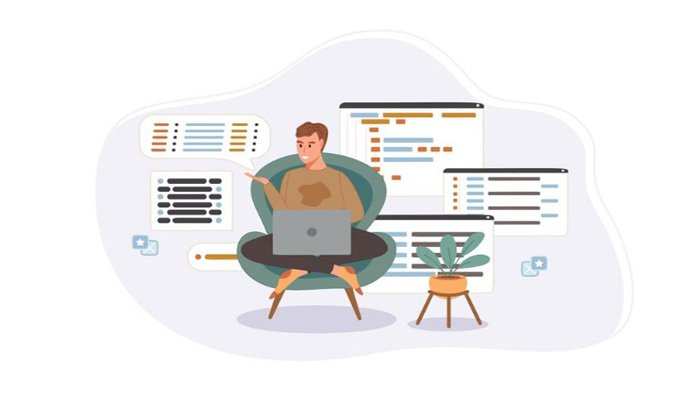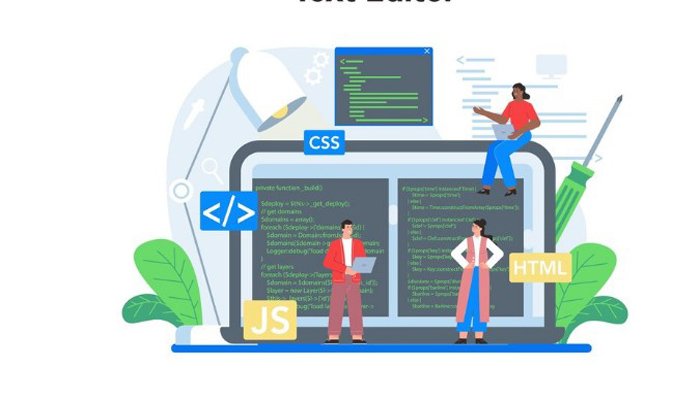
Enhancing Website Performance: A PHP Optimization Guide
Introduction to PHP Efficiency
Overview of PHP in Web Development
PHP, standing as a cornerstone in the realm of web development, offers a flexible and dynamic environment for creating a wide array of web applications, from simple websites to complex web platforms. Its interpretive nature, coupled with extensive support for databases and HTML integration, has cemented its place as a preferred choice among developers for server-side scripting.
Importance of Efficiency for PHP Applications
Efficiency in PHP applications is not just about speeding up code execution; it encompasses the optimization of resource usage, including memory and database interactions, to ensure swift and responsive user experiences. Efficient PHP applications can handle a higher volume of requests with fewer resources, reducing operational costs and enhancing the scalability of web services.
The Impact of PHP Performance on User Experience and Operational Costs
The performance of PHP applications directly influences user satisfaction and operational efficiency. Slow-loading pages and sluggish interactive features can lead to increased bounce rates and lost opportunities. On the operational side, inefficient code can result in higher server loads, requiring more hardware resources and escalating hosting costs. Thus, optimizing PHP performance is crucial for maintaining a competitive edge and ensuring the financial viability of web applications.
Understanding PHP Performance
Defining High-Performance PHP Applications
High-performance PHP applications are characterized by their ability to deliver content and functionality to users in the shortest possible time while minimizing the consumption of server resources. These applications are optimized for speed and efficiency, ensuring that web pages load quickly and that interactions with the server are executed without unnecessary delays.
The Pivotal Role of Efficiency in Web Development
Efficiency in web development is about more than just fast execution times; it encompasses the effective use of caching, database optimization, and code optimization to reduce load times and server demands. Efficient web development practices ensure that applications are scalable, maintainable, and cost-effective, capable of growing with user demand without compromising on performance.
Key Performance Indicators (KPIs) for Web Applications
Key performance indicators for web applications include page load times, server response times, and the time to first byte (TTFB). These metrics provide insights into the user experience and the efficiency of the backend infrastructure. Monitoring these KPIs helps developers identify performance bottlenecks and areas for improvement in PHP applications.
Metrics for PHP Application Efficiency
Introducing the Top 8 Metrics to Monitor
To gauge the efficiency of PHP applications, developers should monitor a variety of metrics, including but not limited to, CPU usage, memory consumption, execution time, database query performance, error rates, throughput (requests per second), latency, and the efficiency of content delivery networks (CDNs). These metrics offer a comprehensive view of an application’s performance, highlighting potential issues and optimization opportunities.
How These Metrics Influence Web App Performance
Each metric provides insight into different aspects of web application performance. For example, high CPU usage may indicate inefficient algorithms or unoptimized code, while slow database queries can reveal the need for better indexing or query optimization. By understanding and improving these metrics, developers can significantly enhance the responsiveness and reliability of PHP applications, leading to better user experiences and lower operational costs.

Foundation Strategies for PHP Performance Enhancement
Overview of Essential Optimization Strategies
Optimizing PHP performance involves a multifaceted approach that targets various aspects of web application development. Essential strategies include code optimization, server configuration, efficient data handling, and front-end optimization. These strategies aim to reduce load times, improve resource utilization, and ensure a seamless user experience. By focusing on both server-side and client-side performance, developers can create fast, responsive applications that meet modern web standards.
Code Optimization Best Practices
Code optimization in PHP entails writing clean, efficient, and well-structured code. Best practices include using the latest PHP version, as each new release typically includes performance improvements and new features. Developers should also leverage PHP’s built-in functions whenever possible, as they are optimized for speed. Refactoring and profiling code to identify and eliminate bottlenecks, reducing complexity, and avoiding unnecessary database queries are crucial steps in enhancing PHP application performance.
The Shift to HTTP/2 for Improved Request Handling
Adopting HTTP/2 significantly impacts web application performance by optimizing the way browsers communicate with servers. HTTP/2 introduces multiplexing, allowing multiple requests and responses between the client and server over a single connection, thereby reducing latency. It also supports server push, where servers can proactively send resources to the client before they are explicitly requested, further speeding up content delivery. Migrating to HTTP/2 requires an SSL/TLS certificate, as most browsers only support HTTP/2 over secure connections.
Implementing Effective Caching Mechanisms
Caching is a critical component of performance optimization, allowing frequently accessed data to be stored temporarily for quick retrieval. Effective caching strategies for PHP applications include opcode caching, which compiles PHP code and stores the precompiled bytecode in memory, reducing the need for repeated parsing and compilation. Additionally, implementing client-side caching through HTTP headers and leveraging browser and proxy caches can significantly reduce server load and improve response times.
Emphasizing Mobile Optimization with a Mobile-First Approach
With the increasing prevalence of mobile internet usage, optimizing PHP applications for mobile devices is paramount. A mobile-first approach involves designing applications with mobile users in mind from the outset, focusing on performance and usability on smaller screens. This approach includes responsive design, optimizing images and media for mobile devices, and minimizing the use of heavy libraries and frameworks that can slow down mobile performance.
Front-End Optimizations to Enhance User Experience
While PHP is a server-side language, front-end optimizations are crucial for the overall performance of web applications. Techniques such as minifying CSS and JavaScript files, optimizing images, and leveraging lazy loading can greatly reduce page load times and enhance the user experience. Implementing these optimizations requires a holistic view of web development, where server-side and client-side performance are treated as interconnected aspects of a single goal: delivering the best possible experience to the end user.
Advanced Techniques for Boosting PHP Efficiency
Profiling PHP Code to Uncover Performance Bottlenecks
Profiling is a crucial technique in identifying areas of a PHP application that may be causing slowdowns. By using profiling tools, developers can analyze the execution time of their scripts and pinpoint specific functions or blocks of code that consume excessive resources. This detailed insight allows for targeted optimizations, enabling developers to make informed decisions about where improvements are most needed.
Utilizing ZendHQ for Code Tracing and Analysis
ZendHQ is a powerful tool for code tracing and performance analysis in PHP applications. It provides developers with the capability to trace the execution of their scripts in real-time, offering detailed insights into how each line of code performs. This level of analysis is invaluable for identifying inefficiencies and optimizing the codebase for better performance.
Code Refinement Strategies for Improved Efficiency
Refining code involves revisiting and revising existing code to improve its efficiency without altering its functionality. Strategies for code refinement include simplifying complex algorithms, reducing redundancy, and eliminating unnecessary code execution. This process not only enhances performance but also contributes to cleaner, more maintainable code.
Advanced Caching Techniques for Optimal Performance
Beyond basic caching strategies, advanced techniques such as object caching, full-page caching, and edge caching can significantly boost PHP application performance. These methods involve storing various elements of a web page, from database query results to entire rendered pages, in cache. This reduces the need for repetitive processing and database access, leading to faster response times and reduced server load.
Server Configuration Adjustments for Better Performance
Optimizing server configuration is key to maximizing PHP application performance. Adjustments might include tuning Apache or Nginx settings, configuring PHP-FPM for optimal resource usage, and ensuring that PHP’s opcache is properly set up. These adjustments help ensure that the server environment is fully optimized for the specific requirements of your PHP application.
Clean Code Practices and Their Importance
Writing clean code is foundational to efficient PHP development. Clean code practices involve writing code that is easy to read, understand, and modify. This includes using meaningful variable names, following consistent coding standards, and documenting code effectively. Clean code not only improves efficiency but also facilitates easier maintenance and scalability of PHP applications.
Choosing Efficient Data Types and Reducing I/O Operations
Selecting the most efficient data types for the task at hand can have a significant impact on performance, particularly in database-driven applications. Efficient data types use less memory and can be processed more quickly. Additionally, minimizing input/output (I/O) operations, such as disk access or network calls, can greatly enhance application performance by reducing latency and freeing up resources.
The Benefits of Updating to the Latest PHP Version
Keeping PHP updated to the latest version is one of the simplest yet most effective strategies for improving application performance. Each new release of PHP brings enhancements in speed, security, and functionality. By updating to the latest version, developers can leverage these improvements to achieve better performance, take advantage of new features, and ensure their applications are as secure as possible.
Practical Tips for PHP Script Optimization
Leveraging Native PHP Functions for Increased Speed
Utilizing native PHP functions can significantly enhance the speed of PHP scripts. These functions are compiled and optimized for performance, offering a faster alternative to manually coded functionalities. Developers are encouraged to familiarize themselves with the extensive library of built-in PHP functions to avoid reinventing the wheel, thereby reducing development time and increasing efficiency.
The Advantages of JSON over XML for Data Interchange
In the context of data interchange, JSON (JavaScript Object Notation) presents several advantages over XML (eXtensible Markup Language). JSON is not only lighter and faster to parse but also more straightforward in terms of structure. These qualities make JSON a preferred format for web applications, particularly in scenarios involving web APIs and AJAX calls, where speed and bandwidth efficiency are crucial.
Advanced Caching Methods to Minimize Load Times
Implementing advanced caching methods, such as object caching, query result caching, and edge caching, can drastically reduce load times for PHP applications. These caching techniques store computational results and serve them upon subsequent requests, minimizing the need for repetitive database queries and data processing. This approach significantly accelerates content delivery and enhances user experience.
Techniques for Reducing Redundant Calculations and Optimizing Code Execution
Optimizing code execution involves identifying and eliminating redundant calculations and inefficiencies. Techniques include memoization, where results of expensive function calls are cached for future use, and algorithm optimization, which involves selecting the most efficient algorithms for the task at hand. Streamlining code execution paths to avoid unnecessary computations also plays a key role in enhancing performance.
Best Practices for Database Interactions to Speed Up Access
Efficient database interactions are pivotal for optimizing PHP applications. Best practices include using prepared statements to reduce parsing time, indexing database columns to speed up queries, and minimizing the amount of data transferred by selecting only the necessary columns. Efficient database design and query optimization are fundamental in reducing latency and improving application responsiveness.

Identifying and Addressing PHP Performance Bottlenecks
Common Bottlenecks in PHP Applications and Their Solutions
Identifying common bottlenecks, such as inefficient database queries, poorly optimized code, and excessive filesystem interactions, is the first step toward optimization. Solutions may involve query optimization, code refactoring, and implementing caching strategies to mitigate these bottlenecks, enhancing the overall performance of PHP applications.
Network, CPU, and Memory Considerations
Performance optimization in PHP applications extends beyond code efficiency to include network, CPU, and memory considerations. Minimizing network latency, efficiently managing CPU-intensive processes, and optimizing memory usage can significantly impact application performance. Techniques include compressing data for network transfers, optimizing algorithms to reduce CPU load, and utilizing memory caching to decrease memory footprint.
Filesystem Interactions and Process Management Challenges
Filesystem interactions and process management are critical areas that can influence PHP application performance. Reducing file access operations, utilizing efficient file handling techniques, and managing background processes effectively can alleviate performance bottlenecks related to the filesystem and process management.
External Dependencies and Their Impact on Performance
External dependencies, such as third-party libraries and services, can significantly affect the performance of PHP applications. Evaluating the efficiency of these dependencies, minimizing their use, and ensuring they are properly optimized can mitigate potential performance issues, ensuring a smoother and faster application experience.
Additional Techniques for Enhancing PHP Performance
OPcache and Its Role in Execution Speed Improvement
OPcache, an opcode cache, plays a critical role in improving PHP execution speed by storing precompiled script bytecode in shared memory. This eliminates the need for PHP to load and parse scripts on each request, significantly reducing response time and increasing throughput. Configuring OPcache properly ensures that a PHP application can serve a higher number of requests with less CPU and memory usage, making it an essential optimization tool in high-performance environments.
Database Optimization Strategies
Optimizing database interactions is key to enhancing PHP application performance. Strategies include indexing, which accelerates query processing by quickly locating the data without scanning the entire table. Regularly analyzing and optimizing queries can also prevent bottlenecks, especially in applications with heavy database usage. Implementing efficient schema design and considering the use of more sophisticated database management features like partitioning and replication are also vital for scaling and performance.
Filesystem Management for Performance Gains
Efficient filesystem management can lead to significant performance gains in PHP applications. Techniques include minimizing file operations, using in-memory caching for frequently accessed files, and optimizing file storage structures. Additionally, leveraging SSDs (solid-state drives) over traditional HDDs (hard disk drives) can dramatically reduce file access times, further enhancing application responsiveness.
API Monitoring and Optimization
For applications that heavily rely on external APIs, monitoring and optimizing API interactions is crucial. This involves implementing caching for API responses, optimizing request batching, and efficiently handling API failures and timeouts to minimize their impact on user experience. Regularly reviewing API usage and performance can help identify opportunities for optimizations, such as adjusting request frequencies or payload sizes.
The Importance of Regular Performance Profiling
Regular performance profiling allows developers to continuously identify and address inefficiencies within PHP applications. Tools like Xdebug and Blackfire.io provide insights into application performance, enabling the identification of slow functions, memory leaks, and other issues that could degrade performance. Incorporating profiling into the development and maintenance process ensures ongoing optimization and helps prevent performance degradation over time.
Concluding Insights on PHP Performance Optimization
The Continuous Need for Performance Optimization
Performance optimization in PHP applications is not a one-time task but an ongoing process. As applications evolve, new features are added, and user bases grow, continuously assessing and enhancing performance becomes essential. Staying updated with the latest PHP versions, adopting new optimization technologies, and regularly profiling the application are crucial steps in maintaining optimal performance.
Strategic Timing for Performance Enhancements
Timing is crucial when planning performance optimizations. Prioritizing critical optimizations that directly impact user experience can provide immediate benefits, while less critical enhancements can be scheduled during regular maintenance windows. Balancing immediate needs with long-term performance goals ensures that resources are effectively allocated to areas with the highest impact.
Final Thoughts on Maintaining and Improving PHP Application Efficiency
Maintaining and improving the efficiency of PHP applications requires a comprehensive approach that encompasses code optimization, server configuration, database management, and more. By adopting best practices, leveraging the latest tools and technologies, and fostering a culture of performance awareness, developers can ensure that their PHP applications remain fast, responsive, and scalable. This commitment to performance not only enhances user satisfaction but also contributes to the success and longevity of the application in a competitive digital landscape.

As a seasoned professional with a unique blend of skills in Computer Design and Digital Marketing, I bring a comprehensive perspective to the digital landscape. Holding degrees in both Computer Science and Marketing, I excel in creating visually appealing and user-friendly designs while strategically promoting them in the digital world.

